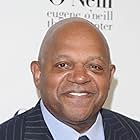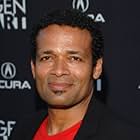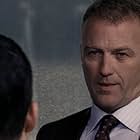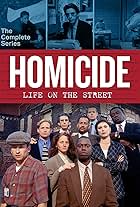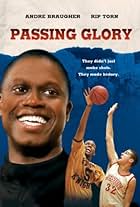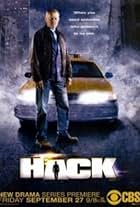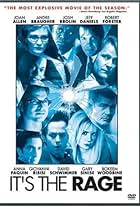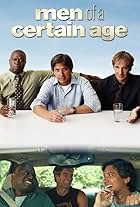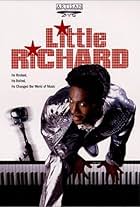Union activist Asa Philip Randolph's efforts to organize the black porters of the Pullman Rail Company in 1920s America.Union activist Asa Philip Randolph's efforts to organize the black porters of the Pullman Rail Company in 1920s America.Union activist Asa Philip Randolph's efforts to organize the black porters of the Pullman Rail Company in 1920s America.
- Awards
- 4 wins & 4 nominations
- A. Philip Randolph
- (as André Braugher)
- James Randolph
- (as Kedar)
- William Green
- (as Chris Bondy)
- Isabel Robbins
- (as Emma Fleury)
- Director
- Writer
- All cast & crew
- Production, box office & more at IMDbPro
Storyline
Did you know
- TriviaA. Philip Randolph was the first president of the BSCP, serving in that position from 1925 through 1968, and received the Presidential Medal of Freedom (the highest civilian honor awarded in the United States) in 1964 from President Lyndon B. Johnson. Randolph was born in 1889, in Florida, and died in 1979 in New York City, aged 90.
- GoofsDuring the Depression, A. Philip Randolph makes a trip to Chicago in the early 1930s. During the stock footage, there is a clip of an L train from the 1950s.
- Quotes
[last tile cards]
Title Card: On August 25th, 1937 the Pullman Company signed the first ever agreement between a union of black workers and a major American corporation. It was twelve years - to the day - of the founding of the Brotherhood of Sleeping Car Porters.
Title Card: For the next four decades Randolph carried forward his fight for equality. In 1963, commemorating the 100th Anniversary of the Emancipation Proclamation, Randolph initiated the March on Washington for Jobs and Freedom. It was at that gathering that a young Martin Luther King, Jr. delivered his "I Have a Dream" speech... and Randolph passed his torch to a new generation of leaders in the fight for Civil Rights.
- Crazy creditsThis film is dedicated to all the men and women who were involved in the struggle to organize the Pullman porters.
Andre Braugher produced as well as starred in this Paramount film for the Showtime network. His is a powerful performance of a man with a cause that would not quit. Charles Dutton and Mario Van Peebles play a pair of his organizing associates who come from different mindsets, but Randolph makes them effective organizers.
Kenneth MacGregor makes a frightening villain, a composite I'm sure of several in the management of the Pullman company which never had a great record with labor relations. Back in the day George Pullman who was a Republican party stalwart and associate in the day of Abraham Lincoln thought he was doing a great thing for newly freed slaves by offering them jobs at coolie wages as Pullman porters. At the time I'm sure that beat the zero wages and substandard room and board you got as a slave. But people generally have ambitions to better themselves. A point of view that oppressors without exception fail to grasp. And then they yell Socialist, Communist, whatever buzz word epithet is popular at the moment. Randolph in fact was a Socialist because Socialists and Communists were the only ones he saw addressing the needs of his people.
There is a touching performance by Brock Peters who nearly brings the organizing to a halt with his activities. His is the touching view of the newly freed slave who just wants to hang on to what he has or the Man will take it away. I'm sure many may have felt as he did.
Randolph lived long enough to be an integral part of the famous March on Washington from 1963. His emphasis was always on economics. Freedom is fine in the abstract, but without a chance at a living wage it really means nothing but freedom to starve wherever you are.
I can't recommend this film highly enough for young people who are interested in the civil rights era. The story of A. Philip Randolph and his work is essential to understand how civil rights came about.
- bkoganbing
- Jan 2, 2015
- Permalink
Details
Contribute to this page







